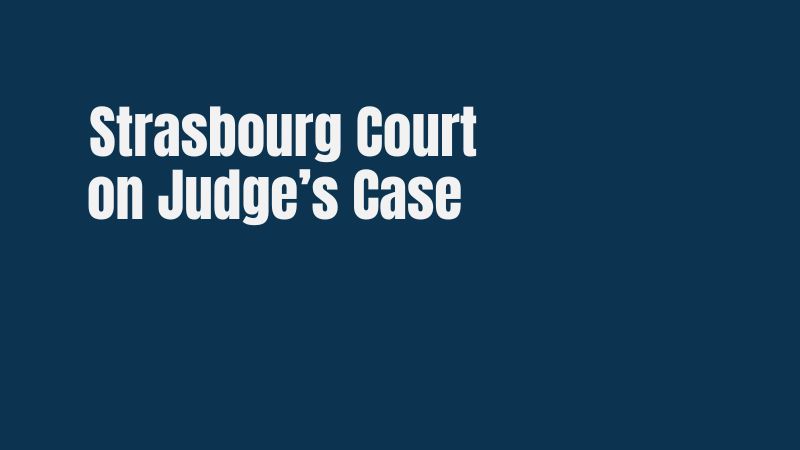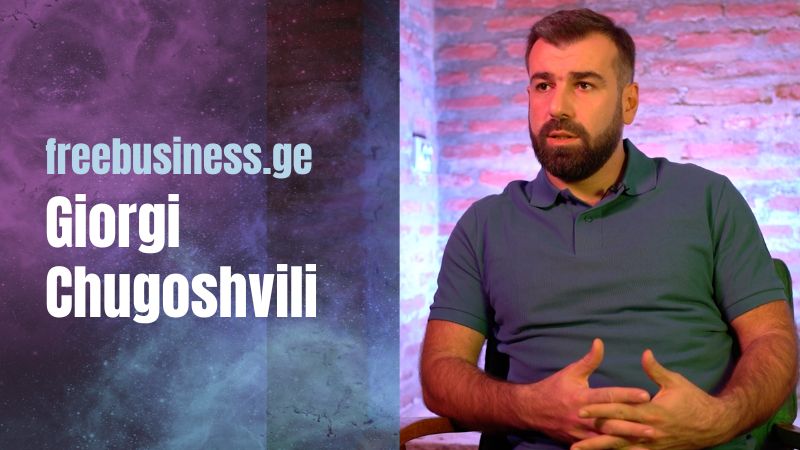The European Court of Human Rights has ruled that former judge Maia Bakradze’s freedom of expression and association was violated. The European Court considered the decision of the Georgian High Council of Justice biased, which denied Maia Bakradze’s reappointment as a judge.
“I expected such a decision from the Strasbourg Court because the violations I was talking about were evident. Unlike domestic courts, Strasbourg saw and evaluated these violations,” Maia Bakradze told Maisi.News.
According to the former judge, the system began to deteriorate in 2007 when the government appointed certain influential groups in the court. Their goal was to control the internal situation.
“Since 2007, the situation has been worsening in terms of judicial independence. That’s why in 2013, we judges created an organization that was a unity of judges with different opinions. We thought we could implement certain changes in the system, and we were critical of the Justice Council’s actions at that time. This was the determining factor why I wasn’t appointed as a lifetime judge,” says the former judge.
After the expiration of her 10-year judicial term, Maia Bakradze participated in two competitions announced by the High Council of Justice. However, by the Council’s decision, she was rejected in both cases.
“The Strasbourg Court explained that there is a corporate governance style in the Georgian judicial system where only loyal people are appointed as judges. The interview was conducted in such a way that my integrity and competence were not examined. The entire interview was about the ‘Unity of Judges,’ they were asking for some kind of report about it,” Bakradze recalls.
According to her, the “Unity of Judges” posed a serious threat to the so-called judicial clan. There was a real possibility that key positions in the court would be held by judges who were members of this unity – “The Unity of Judges had its candidates in the Justice Council, at judges’ conferences, which were more democratic compared to today’s. We had several candidates, there was competition. This unity was threatening to them. That’s why they used the mechanism at their disposal – lifetime appointment. In fact, this neutralized the organization,” Maia Bakradze tells Maisi News.
The European Court found that most of the questions asked during Bakradze’s interview were biased and concerned the “Unity of Judges” and Bakradze’s role in this organization, as well as her vocal criticism of the High Council of Justice.
“The decision in Maia Bakradze’s case confirms that there are indeed serious problems in the judicial system. This particularly concerns judicial appointments. At that time, I was the director of this association and Maia was a board member. During the interview, they were asking about my posts. They were interested if Maia Bakradze agreed with my critical posts. Judges’ freedom is not protected in the country, and this highlights this problem as well,” Nazi Janezashvili, director of “Court Guard,” told us.
According to the ECHR’s explanation, in the candidate evaluation process, it was Maia Bakradze’s role in the “Unity of Judges” and activities related to this role that had an influence.
“My goal was to establish that I am not incompetent and dishonest. I was punished for critical, different opinions. I still believe that different opinions should exist in court. This institution needs to be reformed. There shouldn’t be a monolithic unity, decisions shouldn’t be made by one or two people,” says the former judge.
The former judge notes that at the national level, no judge from any instance had the courage to go against the Justice Council. The victorious judge plans to consult with the Venice Commission in the near future and will make further decisions together with the “Social Justice Center,” an organization defending her interests.
Author: Salome Gogokhia







